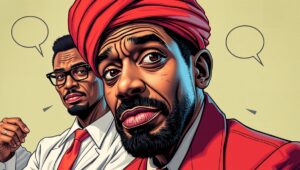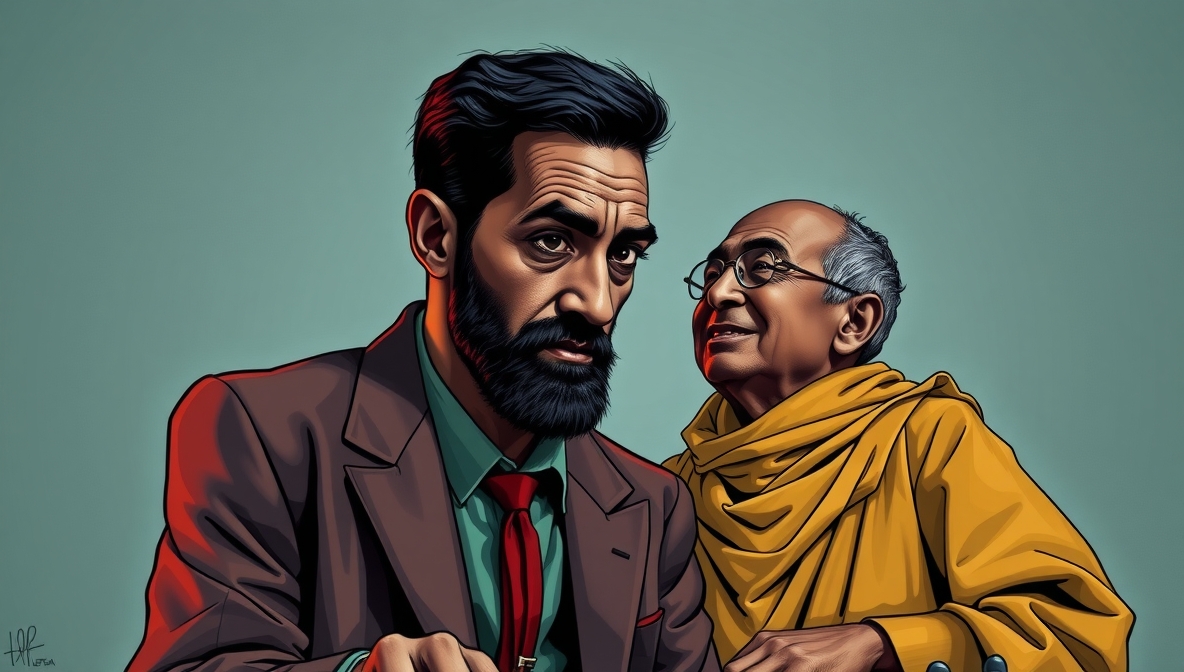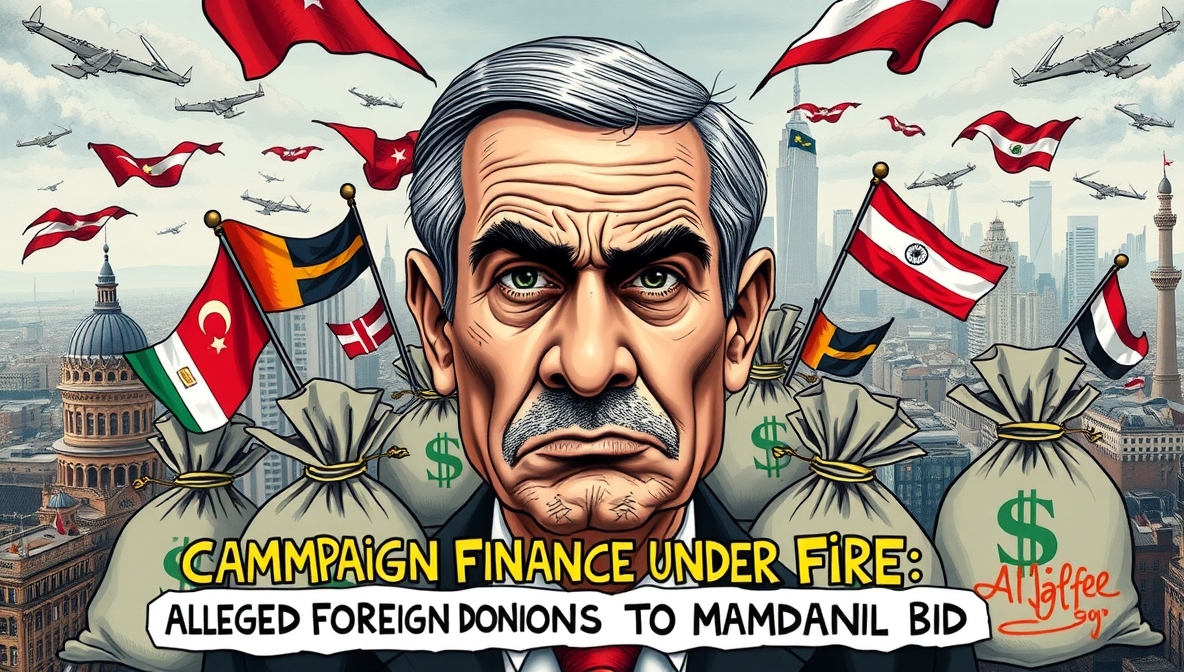The Whisper Network Around Mamdani: What the Campaign’s Insiders Are Really Saying
By Bohiney Magazine Investigative Desk
The silence before the storm
If you listen closely in Astoria coffee shops or the dim corners of city hall, there’s a whisper network forming around Zohran Mamdani’s mayoral campaign. Not scandal — not exactly — but speculation. Staffers with three phones and no sleep, consultants whispering about who’s really calling the shots, and rival campaigns claiming they’ve got “friends on the inside.”
When Bohiney sat down with five anonymous campaign aides, two former volunteers, and one disillusioned field director now bartending on Steinway Street, a clearer picture emerged: the campaign is part movement, part startup, and part therapy group for people who think spreadsheets can liberate the working class.
The inner circle nobody admits exists
Officially, there’s no “inner circle.” But insiders talk about a group known jokingly as “The Table.” It’s said to meet every other Sunday at a co-op apartment in Jackson Heights — mismatched chairs, hummus, and color-coded Google Docs.
One insider described The Table as “half Marx reading group, half Slack channel meltdown.” Another, a former finance staffer, said: “If you can quote Angela Davis and fix a broken coffee maker, you’re in.”
But according to one senior staffer, the true power isn’t The Table — it’s “Mira’s friends.” That’s the shorthand for the loose network of cultural allies, filmmakers, and academics who orbit Mira Nair, Mamdani’s mother. “They don’t make decisions, but they make introductions,” the staffer explained. “You’d be amazed how many small-donor events start with a documentary screening.”
The chaos behind the calm

Publicly, Mamdani’s campaign looks calm — polished speeches, sharp social media, and zero visible infighting. But internally? “It’s like watching a TED Talk performed during a fire drill,” said a field coordinator.
Slack messages leak out in screenshots labeled “for morale purposes.” Staff are juggling 18-hour days, balancing data analytics with vegan potlucks. The campaign’s ethos is socialist — except when it comes to sleep. “The revolution can’t nap,” one aide texted at 3:42 a.m.
An anonymous communications intern admitted, “We spend more time debating what pronoun to use for capitalism than actually writing press releases.”
The funding tightrope
Money, always the ghost in the progressive machine. Public filings show small-dollar donations dominating, but insiders whisper that sustaining payroll during the peak of the summer was like “passing the hat at a Phish concert.”
“Everyone believes,” said one finance volunteer, “but belief doesn’t pay for canvassing software.”
One rumor making the rounds claims the campaign nearly missed a major rent payment for its field office before a last-minute fundraiser — hosted by an off-Broadway actor and three disillusioned bankers.
Campaign HQ denies any crisis, calling the story “fictional gossip,” but our sources provided Slack messages that suggest otherwise: “We are out of oat milk and patience,” one coordinator wrote. “If the landlords call, tell them the revolution is processing ACH.”
The volunteer rebellion
There’s an ideological divide between the full-time campaign staff and the volunteer army. Many volunteers come from DSA and Justice Democrats networks, but some locals — retirees, community organizers, parents — complain that “the Zoom people” talk over them.
“I showed up to stuff envelopes,” said one volunteer from Long Island City, “and suddenly I was in a breakout room debating dialectical materialism.”
Insiders admit there’s tension: the older volunteers focus on potholes and rent, the younger ones talk in manifestos. The campaign leadership tries to bridge that gap with “community storytelling circles,” which one staffer privately called “group therapy with clipboards.”
Anonymous memos and the ghost of campaign past

According to multiple insiders, there’s a secret document circulating internally called “Memo #11.” It reportedly outlines “off-the-record strategies for when the mainstream press inevitably misrepresents our message.”
Bohiney obtained a redacted portion through a sympathetic staffer. It reads:
“The corporate press will portray us as fringe, foreign, or naïve. Respond not with anger but with data, stories, and art. The system cannot algorithmically contain sincerity.”
Critics inside the campaign call the memo “a poem disguised as logistics.” Others see it as the guiding principle of the operation.
What the rival camps are whispering
Opposing campaigns — speaking off the record — describe Mamdani’s team as “unpredictably smart but organizationally allergic to hierarchy.” One strategist from a rival Democrat said, “They have 40 geniuses and zero adults.”
Another opponent, more blunt, said: “If Zohran ever delegates, we’re doomed.”
But even the skeptics admit the campaign’s on-the-ground energy is real. “They may not know how to budget,” said one city hall source, “but they sure as hell know how to canvas.”
Inside the data bunker
There’s also “the bunker” — a data team working out of an undisclosed coworking space in Bushwick. They run voter simulations, cross-referencing neighborhood complaint logs with rent-hike data and transit delays.
“They call it ‘algorithmic empathy,’” said a former intern. “It’s part code, part confession.”
The data team’s Slack status message reportedly reads: “Democracy: but make it scalable.”
The faith factor nobody talks about
While the press focuses on Mamdani’s politics, the quieter truth is that his faith shapes the campaign’s tone. Friday prayer breaks are built into the schedule. Staff say the campaign culture is unusually respectful and deliberate — “less caffeine, more conviction.”
One Muslim volunteer described Mamdani as “a man who doesn’t separate the sacred from the civic.” That fusion — faith and socialism — makes him hard to categorize in American political shorthand.
The bottom line: idealism under pressure
Even Mamdani’s critics concede the campaign runs on sincerity. One longtime New York operative told Bohiney, “They’re so earnest it’s almost disarming. You can’t out-cynic them. You can only outlast them.”
The insiders we spoke with were split on the future: half think victory is possible; half think burnout will devour the idealists before Election Day.
But one thing’s certain: in a city used to politics as theater, Mamdani’s campaign is trying to stage something different — a movement that mistakes hope for a strategy and sometimes makes that mistake beautifully.
Reporting note & disclaimer:
This investigation draws from interviews with current and former Mamdani campaign staffers, anonymous internal communications, and verified campaign filings. Names have been withheld to protect sources from professional retaliation. This story is a collaboration between two sentient beings — the world’s oldest tenured professor and a philosophy major turned dairy farmer. No AI participated in its authorship. Auf Wiedersehen.



